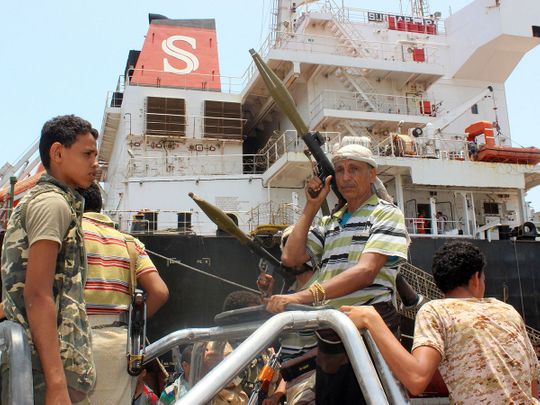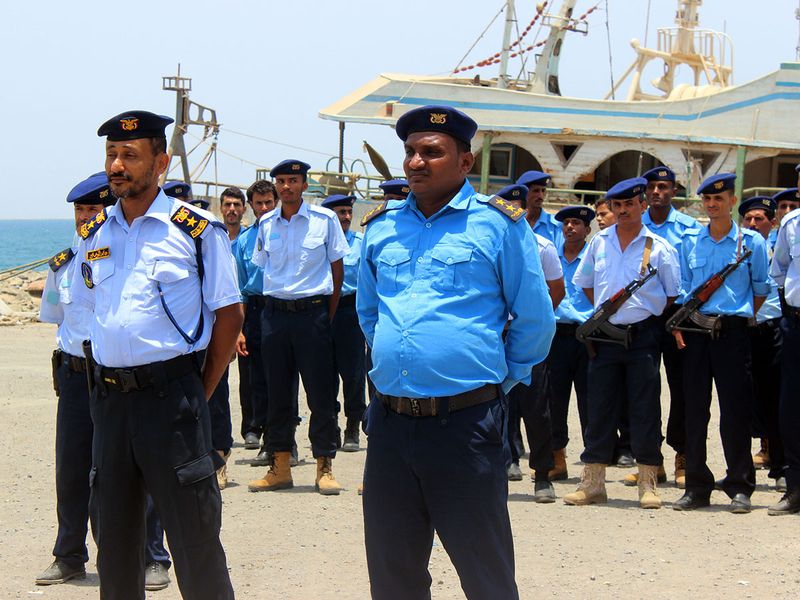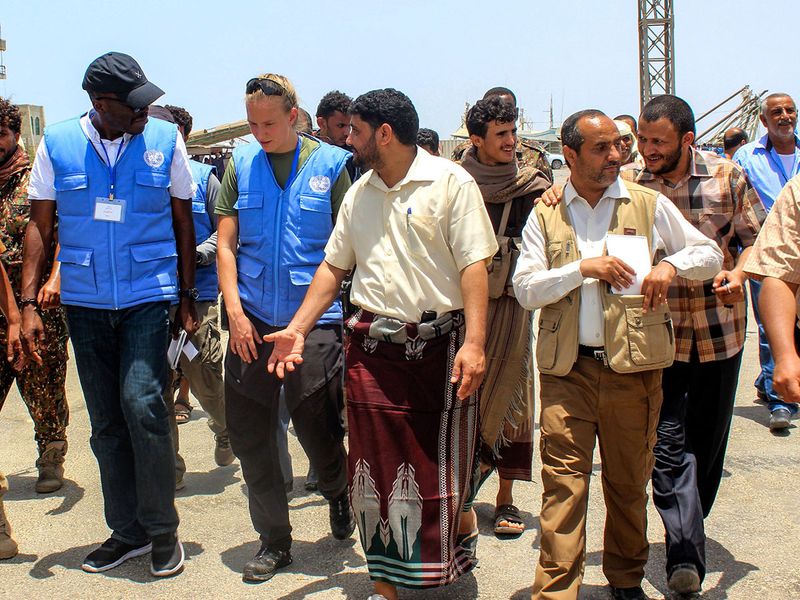
Hodeida - The UN confirmed a withdrawal by Yemen's Houthi rebels from three Red Sea ports had begun Saturday, while a senior pro-government official accused the rebels of faking the pullout.
A senior Yemeni official Sunday accused the UN of colluding with the Iran-allied Al Houthi militants, who claimed to have started a withdrawal from three ports in the Red Sea city of Hodeida
The rebel pullback is a first step in implementing a hard-won ceasefire deal reached between Yemen's internationally-recognised government and the Iran-backed Houthi rebels late last year. But the internationally- recognized government is not being part of overseeing the pullout, in violation of the UN-brokered peace deal reached between the government and Al Houthis in Sweden last December.
The UN has said its monitors are observing the withdrawal from the ports of Hodeida, Saleef and Ras Isa.
“It is shameful that UN representatives collude with a militia [Al Houthis] in covering up its infringement of its responsibilities towards the UN resolutions,” Abdul Malek Al Mekhlafi, an advisor to the Yemeni president, tweeted.
“Withdrawals aimed at peace are not fulfilled by unilateral announcements, but rather by good intentions, cooperation and abidance by agreements and terms of reference,” he added.
“Covering up the militia’s acts is a crime conducive to the continuation of war,” Al Mekhlafi, a former foreign minister, said in a series of tweets.
Withdrawal under progress
"Yes, it has begun," said UN spokesman Farhan Haq, when AFP asked whether redeployment of Houthi troops was underway.
Sources close to the Houthis said that the ports were handed over to coastguard personnel who were in charge before the rebels took over almost five years ago.
An AFP photographer at Saleef port saw Houthi troops leave the facility, and men dressed in coastguard uniforms enter, adding that these movements were observed by the UN.

But the govenor of Hodeida, Al Hasan Taher, said the Houthis were merely reshuffling personnel.
"The Houthis are staging a new ploy by handing over the ports of Hodeida, Saleef and Ras Issa to themselves without any monitoring by the United Nations and the government side," the government-appointed official said.
UN envoy "Martin Griffiths wants to achieve victory even if the Houthis hand over (the ports) to themselves," Taher said.
"This is totally rejected by us, and the agreement must be implemented in full, especially with regards to the identity of the troops that will take over from the Houthis," he added.
Hodeida port is the main entry point for the bulk of Yemen's imports and humanitarian aid, serving as a lifeline to millions of civilians pushed to the brink of famine by more than four years of war.
The city is strategically important for Yemen because of its main port, through which most the poor country’s imports and humanitarian aid enter.
Hodeida has been under Al Houthi control since late 2014.
Yemen’s conflict erupted after Al Houthis unseated the internationally-recognised government of President Abd Rabbo Mansour Hadi and overran parts of the country, including the capital Sana’a in December 2014.
In March, 2015, an Arab alliance led by the United Arab Emirates and Saudi Arabia, intervened in Yemen in response to a request from the Hadi government after Al Houthis advanced on the southern city of Adan, the country’s provisional capital.
UN to meet
The withdrawal of rebel forces is due to be completed by Tuesday, the head of the UN redeployment committee, General Michael Lollesgaard, said in a statement.
The UN Security Council is due to hear a briefing on Hodeida on Wednesday.

The head of the rebels' Supreme Revolutionary Committee, Mohammed Ali Al Houthi, pledged that fighters would start pulling back at 10:00 am (0700 GMT) in a bid to restart the stalled ceasefire deal with the government.
He accused the government of delaying a parallel pullback from parts of the city of Hodeida that it had pledged to make under a December truce.
The agreement last year in Sweden was hailed as a breakthrough that offered the best chance so far of ending the war in Yemen, where a coalition led by Saudi Arabia and the United Arab Emirates is fighting on the government's side.
But although the fighting has largely stopped, there have been intermittent clashes and the promised redeployment of the warring parties away from the front lines has failed to materialise.
Yemen's information minister demanded joint verification of the promised rebel withdrawal.
"We... warn of attempts by the militia to mislead the international community and the (UN) Security Council before the next meeting," Moammer Al Eryani tweeted.
He said any unilateral redeployment by the rebels without control and joint verification "cannot be accepted."
Untapped grain stocks
Nearly all goods pass through Hodeida and the main storage and distribution centre for imported grain lies in government-held territory on the city's outskirts.
The silos of the Red Sea Mills currently contain some 51,000 tonnes of grain - enough to feed 3.7 million people for a month - but it has gone unused since the fighting forced the UN to withdraw its staff in September.
The mills came under renewed fire on Thursday with two silos hit, one of them containing wheat, the UN said.
The military coalition intervened in March 2015 when President Abedrabbo Mansour Hadi fled into Saudi exile after the rebels took swathes of the country.
Yemen's conflict has killed tens of thousands of people, many of them civilians, relief agencies say.
The fighting has triggered what the UN describes as the world's worst humanitarian crisis, with 24.1 million - more than two-thirds of the population - in need of aid.
- With inputs from Ramadan Al Sherbini












